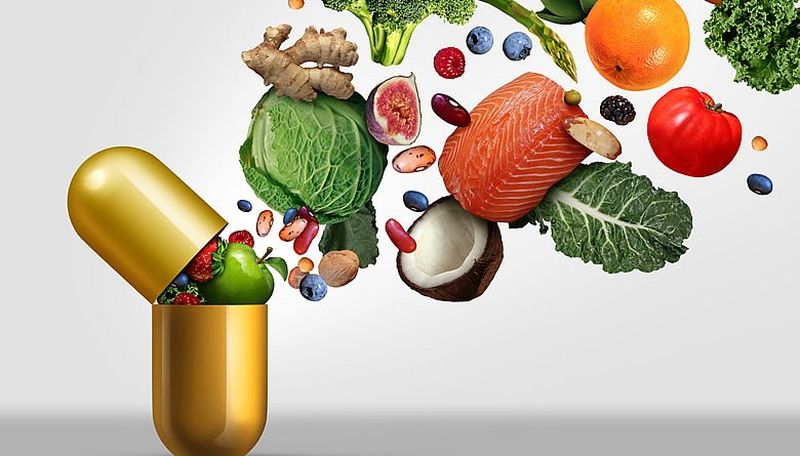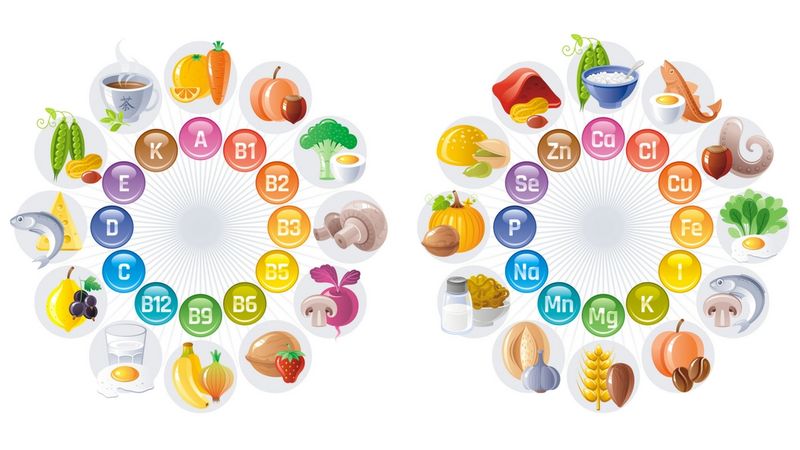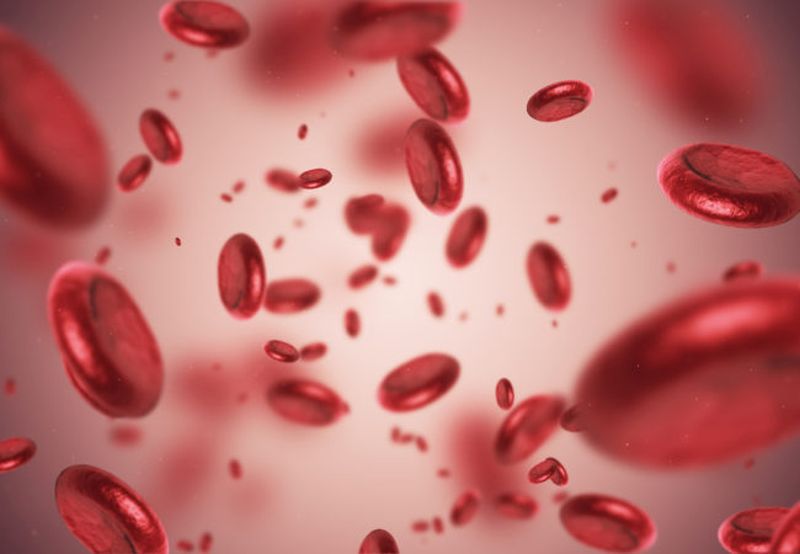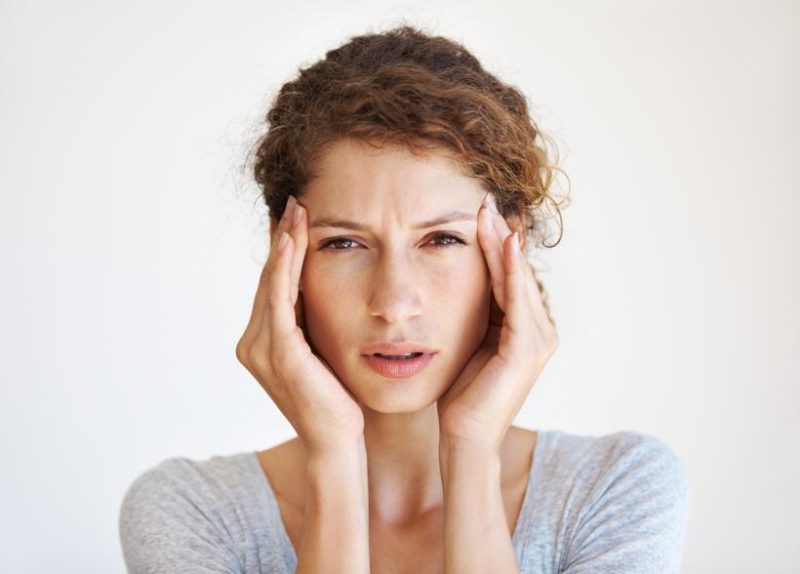If you feel tired, weak or often depressed, if your fingernails are brittle and your hair is thin, you might be concerned, that you are suffering from a serious illness. Sometimes this is indeed the case – and talking to a doctor is always a good idea.
But we all tend to assume the worst. Therefore self-diagnosis with Google is never a good idea. A harmless cold can in your mind quickly turn into a rare and deadly disease for which there is no cure.
This is why we would like to illustrate in this text: Many worrying symptoms such as hair loss, fatigue, diarrhea, brittle fingernails, and many other occurrences are in most cases not signs of a serious illness. Often they are simply warning signs, that the body is not being supplied with the nutrients it desperately needs.
Among the most common nutrient deficiencies in western societies, vitamin and iron deficiencies are the most common. Women, in particular, are often affected by iron deficiency and therefore feel tired and weak. In addition, iron deficiency depresses the mood to an extent, that is not to be underestimated.
Vitamins are essential micronutrients

source:scienceauthorities.com
Vitamins and minerals provide the human organism with valuable anti-inflammatory, immunostimulating, invigorating, regenerating and detoxifying substances that boost individual immune activity, stimulate the formation of new body cells, grow muscle fibers, improve the exchange of nutrients, information and oxygen between cells, slow down the body’s own inflammatory processes, reduce the risk of infection and slow down the natural aging process. Since the human organism is unable to produce vitamins on its own, a regular supply of vitamins is absolutely essential for good health.
While an organism supplied by enough vitamins is likely in good condition, vitamin deficiency can lead to the growth of tumor or cancer cells and promotes the development of certain illnesses and depressive moods. A nutrient deficiency also weakens the body’s own defenses, increases susceptibility to infections. The body is getting ill more often and is more prone to inflammatory reactions. The aging process is accelerated and physical performance reduced.
Vitamin deficiency triggers harmful inflammatory processes in the body

source:deannaminich.com
Tiredness, hair loss and depression are therefore a direct consequence of a vitamin deficiency. A deficiency of vitamins B, C and E, in particular, leads to deficiency symptoms that weaken concentration, cause restlessness or fatigue and maximize the risk of infection.
Anyone who fails to supply his or her organism with sufficient nutrients over the long term risks triggering inflammatory reactions. These anchor themselves as chronic centers of inflammation in body cells and tissue. In addition, the proportion of inflammatory messengers circulating in blood serum swells to a maximum. Corresponding inflammatory reactions spread to the entire organism and consequently also affect the tissue around the hair root, which lead to the loss of hair.
The inflammatory hormones directly trigger inflammatory processes in the region of the hair root and consequently inhibit the natural growth cycle of the hair. At the same time, the centers of inflammation in skin and tissue prevent an optimal exchange of nutrients and oxygen via the bloodstream. The hair root reacts to vitamin deficiency by stopping its natural growth.
If the deficiency persists for a relatively long time, the hair root can die in extreme cases. Persons who do not focus sufficiently on their individual nutrient balance therefore potentially risk hair loss, which is a serious cry for help from one’s body
Iron deficiency is serious. Seriously.

source:health.clevelandclinic.org
Iron is an indispensable mineral on which the body depends. Iron is a component of the red blood pigment hemoglobin as well as the muscle pigment myoglobin and other enzymes. It not only binds the oxygen in the blood but also in the muscles and ensures that it is transported to every single cell in the body. An iron deficiency is accompanied by many different symptoms. In addition to hair loss and hair breakage, these include headaches, fatigue and exhaustion.
Different stages of iron deficiency
The first stage is harmless. The content of stored iron decreases, but still enough red blood cells are formed. Most people don’t even notice at this stage the iron deficiency, which proceeds without symptoms.
The second stage leads to an illness due to the undersupply of the valuable mineral substance to the cells. The trace element can’t be mobilized quickly enough from the stores in the liver and spleen. First symptoms such as pain when swallowing food, cracked corners of the mouth, dry skin and brittle hair become noticeable.
In the third stage, the functions of the body getting quite limited. In this stage, there is a dangerous iron deficiency with symptoms such as headaches, insomnia, fatigue, restlessness, brittle nails and shortness of breath.
The cause of the iron deficiency

source:healthline.com
The most common cause of iron deficiencies are bleed wound as well as menstruation. A woman suffering from especially heavy menstrual bleeding oft experiences iron deficiencies. Iron deficiency is often also caused by improper vegan and vegetarian diets (or malnutrition).
The best sources of iron are red meat and fish. Some vegetables and legumes also contain relatively high levels of iron. The disadvantage of vegetables is that the body cannot absorb the iron as well as it can absorb iron from animal sources. Various diseases, medicines, and foods or a lack of vitamin C also lead to reduced absorption of iron.
Who needs an increased iron intake?

source:healthline.com
Women, in particular, need more iron every day than men because they need to compensate for the loss of hemoglobin during menstruation. Even during pregnancy, care should be taken to ensure an iron-rich diet, because the unborn child is supplied with vital minerals from the mother’s bloodstream during pregnancy.
Iron deficiency is also often found in senior citizens. Tiredness, weakness and concentration problems are not always age-related symptoms and should be diagnosed by a doctor. Dangerous consequences of iron deficiency are, for example, the increased risk of falling. Shortness of breath as well as feelings of weakness, which severely restrict the quality of life of those affected.
Source: https://www.haarausfall-hilfe.de/

